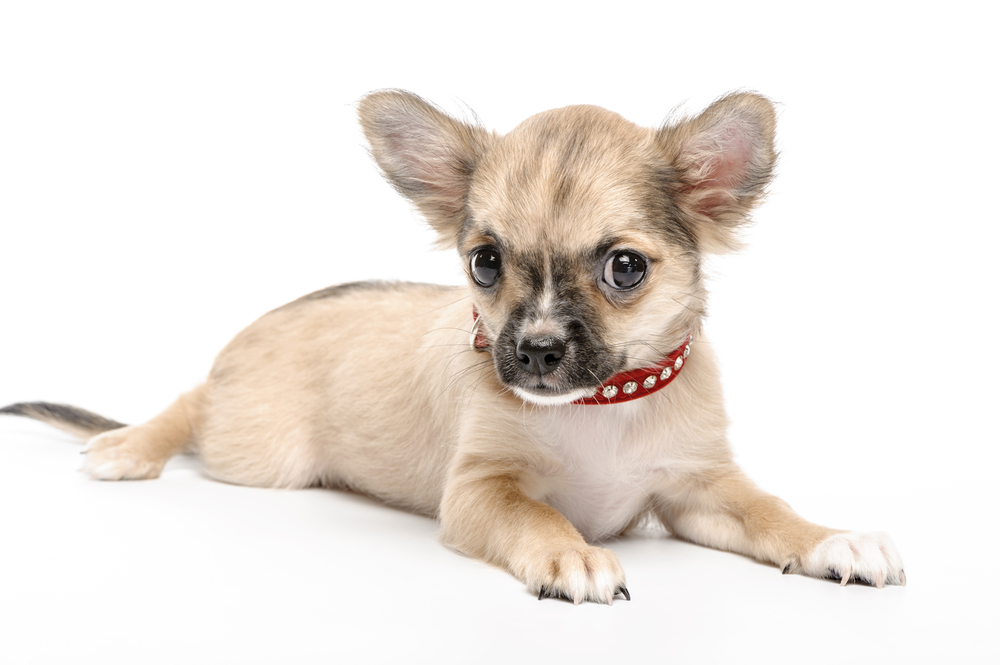Sometimes you need to catch your puppy by the collar if he’s eating something dangerous or about to take a flying leap and you need to stop him quick. Here’s how to successfully teach him to like having his collar handled so he doesn’t respond aggressively during these incidents.
“Time out!” I called. Seven people answered with a happy “Gotcha!” and scrambled to grab their puppies’ collars and immediately offer them a treat. Once they finished munching, puppies were released again to play.
This is an important – and often comical – part of my puppy kindergarten classes. Puppies can be fast! It’s not always easy to snare one, so folks have to be on their toes. It takes only a few repetitions, however, before the little scamps are wagging their tails during “Gotcha” practice. This exercise can go a long way in preventing handling aggression as these puppies grow up.
Collar Grabs Don’t Have To Be Negative
Puppies get into a lot of trouble. They put everything in their mouths, from leaves to paper wrappers to cigarette butts. You sometimes need to grab a puppy’s collar to keep him safe. To your puppy, this can be interpreted as punishment. You took his prize away.
Before you’ve trained your puppy to come when called, you may snag his collar to make him come inside from your yard. You may take him by the collar to guide him off the couch, or to tuck him inside his crate. You don’t mean to punish him by doing this, but your puppy can still interpret you touching his collar negatively.
This is why I include puppy collar desensitization – collar grabs – in my classes. By immediately following the grab with a treat, it builds a positive association for the puppies.
Important Life Skill
I’ve seen the results when puppies haven’t been taught this lesson during the critical socialization period (from birth to about 16 weeks). Sometimes, a puppy adds up all the unpleasant collar grabs and grows up to be a teenage or adult dog who growls when you reach for his neck. You may even just go to pet him, or to move him over on the couch, and he’ll growl at you.
To prevent this from happening, start training as soon as you bring your puppy home. Say “Gotcha!” in a happy voice, then lightly take hold of his collar. Then give him a treat. It’s important that these steps happen one after the other, not all at once. One step needs to predict the next so that your puppy makes the correct association. First, he hears a cue, then you take hold of his collar, and only after that does he get a treat. Practice about 10 times a day, randomly throughout the day.
You’ll still might have to sometimes grab your puppy’s collar to fish things out of his mouth. You can make this a more pleasant experience for him by giving him praise and a treat when you take something from him. Never chase your puppy when he has something he shouldn’t have – instead, encourage him to come to you, then reward him when you take the item from him. With the addition of your collar desensitization training, he won’t find the process so awful, and he’ll be a lot easier to handle as he grows up.
This article was reviewed/edited by board-certified veterinary behaviorist Dr. Kenneth Martin and/or veterinary technician specialist in behavior Debbie Martin, LVT.








